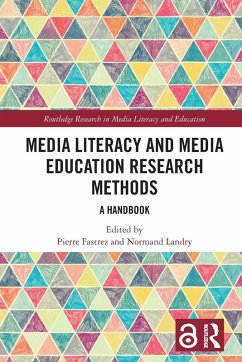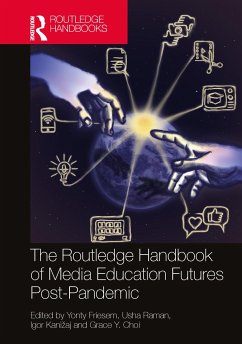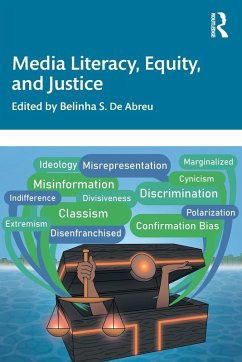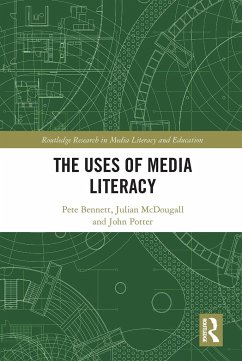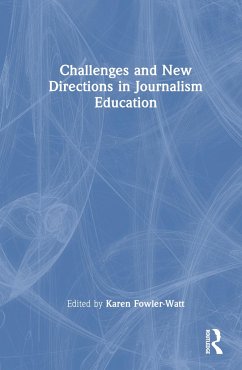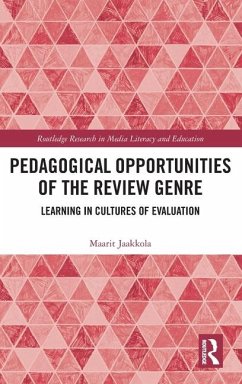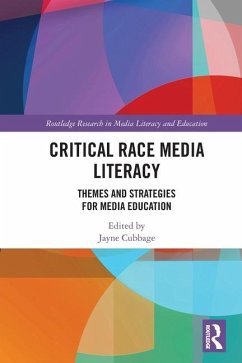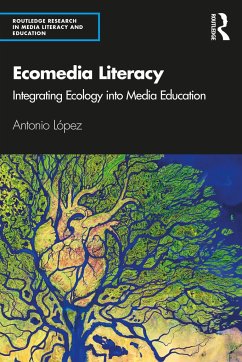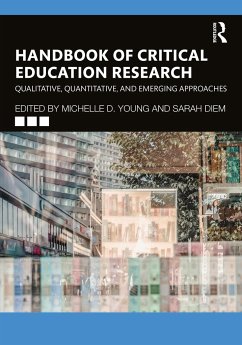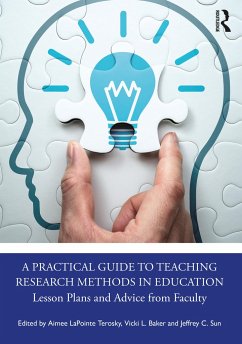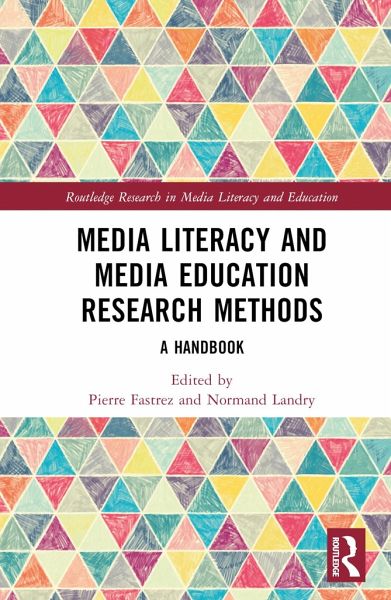
Media Literacy and Media Education Research Methods
A Handbook
Herausgegeben: Fastrez, Pierre; Landry, Normand
Versandkostenfrei!
Versandfertig in 6-10 Tagen
154,99 €
inkl. MwSt.
Weitere Ausgaben:

PAYBACK Punkte
77 °P sammeln!
This handbook interrogates the foundations of media literacy and media education research from a methodological standpoint. It provides a detailed, illustrated overview of key methods used in the study of media literacy and media education. Further, it reveals the diversity of this research field and organizes this diversity by using three categories of investigation: media practices, educational initiatives, and prescriptive discourses.The book offers valuable reference points and tools for exploring the range of research methods used to study media literacy and media education and how these ...
This handbook interrogates the foundations of media literacy and media education research from a methodological standpoint. It provides a detailed, illustrated overview of key methods used in the study of media literacy and media education. Further, it reveals the diversity of this research field and organizes this diversity by using three categories of investigation: media practices, educational initiatives, and prescriptive discourses.
The book offers valuable reference points and tools for exploring the range of research methods used to study media literacy and media education and how these methods connect to epistemological stances, theoretical frameworks, and research questions. It serves as a guide for researchers who wish to position themselves, reflect on the methods they use or are considering using, and compare and contrast them against alternative or complementary approaches. After reading this book, readers will be better able to identify and define the objects of study in media literacy and media education research, the preferred ways of conducting investigations, the phenomena, issues, and dimensions that these are likely to bring to light, and the knowledge that they generate.
This comprehensive and up-to-date overview of the field of media literacy education research methods will be of great interest to scholars and students of education studies, media studies, media literacy, cognitive science, and communication studies.
Chapter 2 of this book is freely available as a downloadable Open Access PDF at http://www.taylorfrancis.com under a Creative Commons Attribution (CC-BY) 4.0 International license.
The book offers valuable reference points and tools for exploring the range of research methods used to study media literacy and media education and how these methods connect to epistemological stances, theoretical frameworks, and research questions. It serves as a guide for researchers who wish to position themselves, reflect on the methods they use or are considering using, and compare and contrast them against alternative or complementary approaches. After reading this book, readers will be better able to identify and define the objects of study in media literacy and media education research, the preferred ways of conducting investigations, the phenomena, issues, and dimensions that these are likely to bring to light, and the knowledge that they generate.
This comprehensive and up-to-date overview of the field of media literacy education research methods will be of great interest to scholars and students of education studies, media studies, media literacy, cognitive science, and communication studies.
Chapter 2 of this book is freely available as a downloadable Open Access PDF at http://www.taylorfrancis.com under a Creative Commons Attribution (CC-BY) 4.0 International license.





